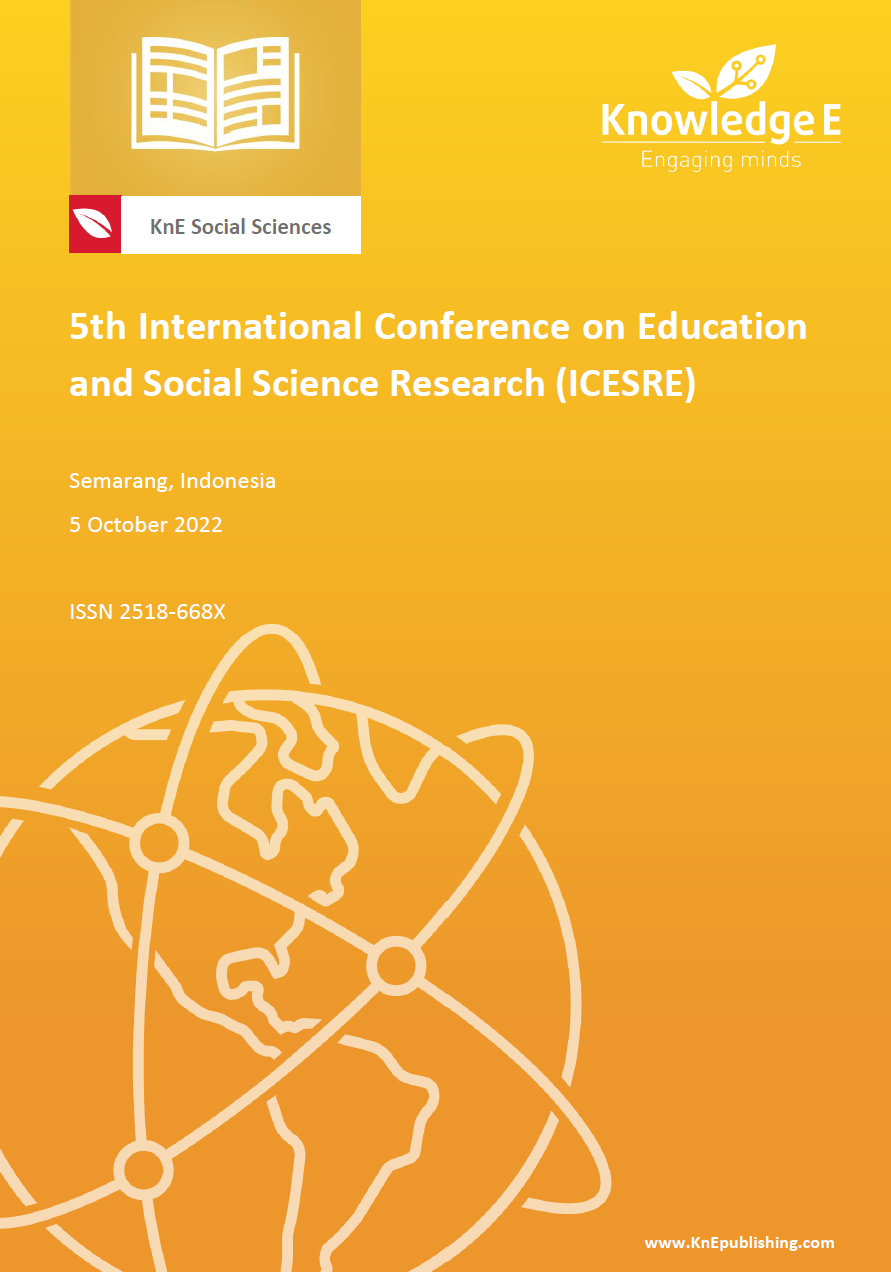Digitalization of Education in the Implementation of Kurikulum Merdeka
DOI:
https://doi.org/10.18502/kss.v7i19.12438Abstract
The Indonesian Ministry of Education, Culture, Research, and Technology (Kemendikbudristek) recently released several educational platforms like Merdeka Belajar, Rapor Pendidikan, Belajar.id, ARKAS, TanyaBOS, SiPLah and Kampus Merdeka to make a leap in educational progress. However, the user percentage is still low, which may be due to various reasons such as limited internet access and reluctance to learn new technology. Discussion on which priority technology platforms are and how they are used to support Kurikulum Merdeka’s implementation has been limited. Therefore, this paper will analyze the primary educational platforms useful for the implementation of Kurikulum Merdeka. We carried out a systematic review of the relevant databases on the digitalization of education in implementing Kurikulum Merdeka. Although the current educational platforms are still being developed, they provide unique features which facilitate students, teachers, administrators, and principals in the learningmanagement process at all levels of education. This work has the potential to become an essential reference that provides guidelines for using the educational platform to improve the number of users.
Keywords: Kurikulum Merdeka; Merdeka Belajar; software; digital school; application
References
[2] Sihombing AA, Anugrahsari S, Parlina N, Kusumastuti YS. Merdeka Belajar in an online learning during the Covid-19 Outbreak: Concept and implementation. Asian Journal of University Education. 2021;17:35–48.
[3] Rizka Zulfika. Perception, level of trust and behavior of Indonesian lecturers in responding “Kampus Merdeka” policy. Journal of Visual Languages and Computing. IG Live Talk Show; 2019.
[4] Brata DPN, Utomo ES, Sukardi S. The analysis of students’ attitudes construction based on pancasila profile to be integrated with teacher’s lesson plan in junior high school in pandemic era. Proceedings of the 2nd International Conference on Education and Technology (ICETECH 2021). 2022;1:313-320.
[5] Prakoso BH, Ramdani Z, Rahmah B. Teacher’s perception on merdeka belajar policy. Indonesian Journal of Educational Assessment. 2021;3:128–137.
[6] Faizah U, Permanasari A, Rustaman NY. How did lecturers and students adapt to online learning during the Covid-19 pandemic? Proceedings of the 5th Asian Education Symposium 2020 (AES 2020). 2021;1:140-144.
[7] Cresswell JW, Cresswell DJ. Research design qualitative, quantitative, and mixed methods approach. Los Angeles: Sage Publications Inc.; 2018.
[8] Cresswell JW, Plano-Clark VL, Gutmann ML, Hanson WE. Advanced mixed methods research designs. Handbook of Mixed Methods in Social & Behavioral Research. 2003: 209–240.
[9] Sugiyono. Metode penelitian dan pengembangan pendekatan kualitatif, kuantitatif, dan R&D. Bandung: Alfabeta; 2015.
[10] Lu J. Data analytics research-informed teaching in a digital technologies curriculum. INFORMS Transactions on Education. 2020;20:57–123.
[11] Breiter A. Decision support systems in schools-from data collection to decision making. Proceedings of Tenth America’s Conference on Information Systems. 2004;1:2076-2082.
[12] Abrams LM, Varier D, Mehdi T. The intersection of school context and teachers’ data use practice: Implications for an integrated approach to capacity building. Studies in Educational Evaluation. 2021;69:100868.
[13] Michaeli S, Kroparo D, Hershkovitz A. Teachers’ use of education dashboards and professional growth. International Review of Research in Open and Distributed Learning. 2020;21:61–78.
[14] Rääk K, Eisenschmidt E, Tammets K. Exploring the perceptions of Estonian teachers’ data use in school development. Education Sciences. 2021;11:262.
[15] Kemendikbudristek. Buku panduan capaian hasil asesmen nasional untuk satuan pendidikan. Jakarta: Kemendikbudristek; 2022.
[16] Peraturan Menteri Keuangan Nomor 24. Peraturan Menteri Dalam Negeri Nomor 24 Tahun 2020. Jakarta: Kemenkeu; 2020.
[17] Mendikbud SK. Permendikbudristek RI Nomor 2 Tahun 2022. Jakarta: Kemendikbudristek; 2022.
[18] BPK. Peraturan Menteri Dalam Negeri (Permendagri) No. 13 Tahun 2006 tentang Pedoman Pengelolaan Keuangan Daerah. Jakarta: BPK; 2006.
[19] Permendagri No. 77. Peraturan Menteri Dalam Negeri Republik Indonesia Nomor 77 Tahun 2020 Tentang Pedoman Teknis Pengelolaan Keuangan Daerah. Jakarta: Mendagri; 2020.
[20] Kementerian Keuangan Republik Indonesia. Peraturan menteri keuangan republik indonesia nomor 119/pmk.07./2021 tentang pengelolaan dana alokasi khusus nonfisik. Jakarta: Kemenkeu; 2021.
[21] KPK. SE KPK Nomor 8 Tahun 2020. Jakarta: KPK; 2020.
[22] Kementerian Pendidikan dan Kebudayaan. Peraturan Menteri Pendidikan dan Kebudayaan Republik Indonesia Nomor 14 Pedoman Pengadaan Barang/jasa Oleh Satuan Pendidikan. Pedoman Pengadaan Barang/Jasa Oleh Satuan Pendidik. Jakarta: Kemendikbudristek; 2020.

